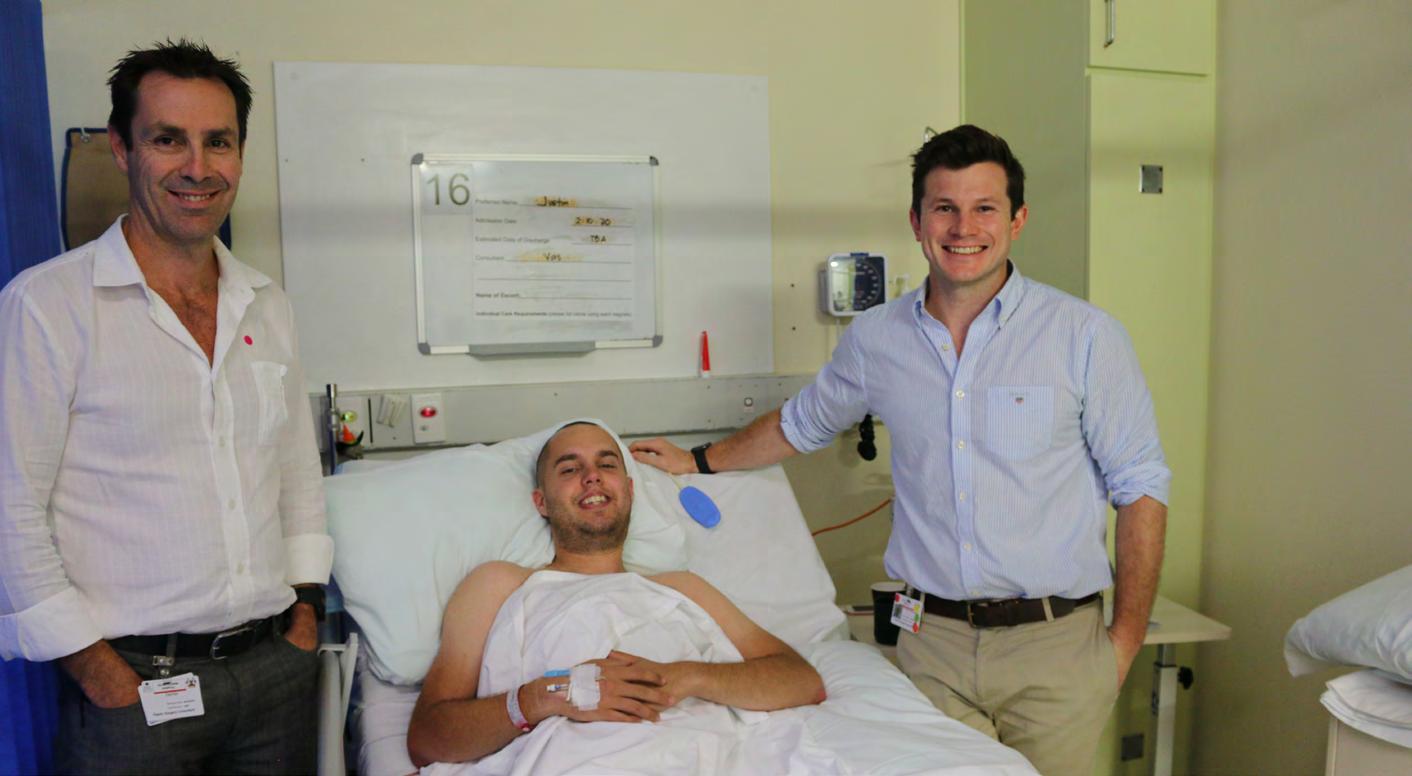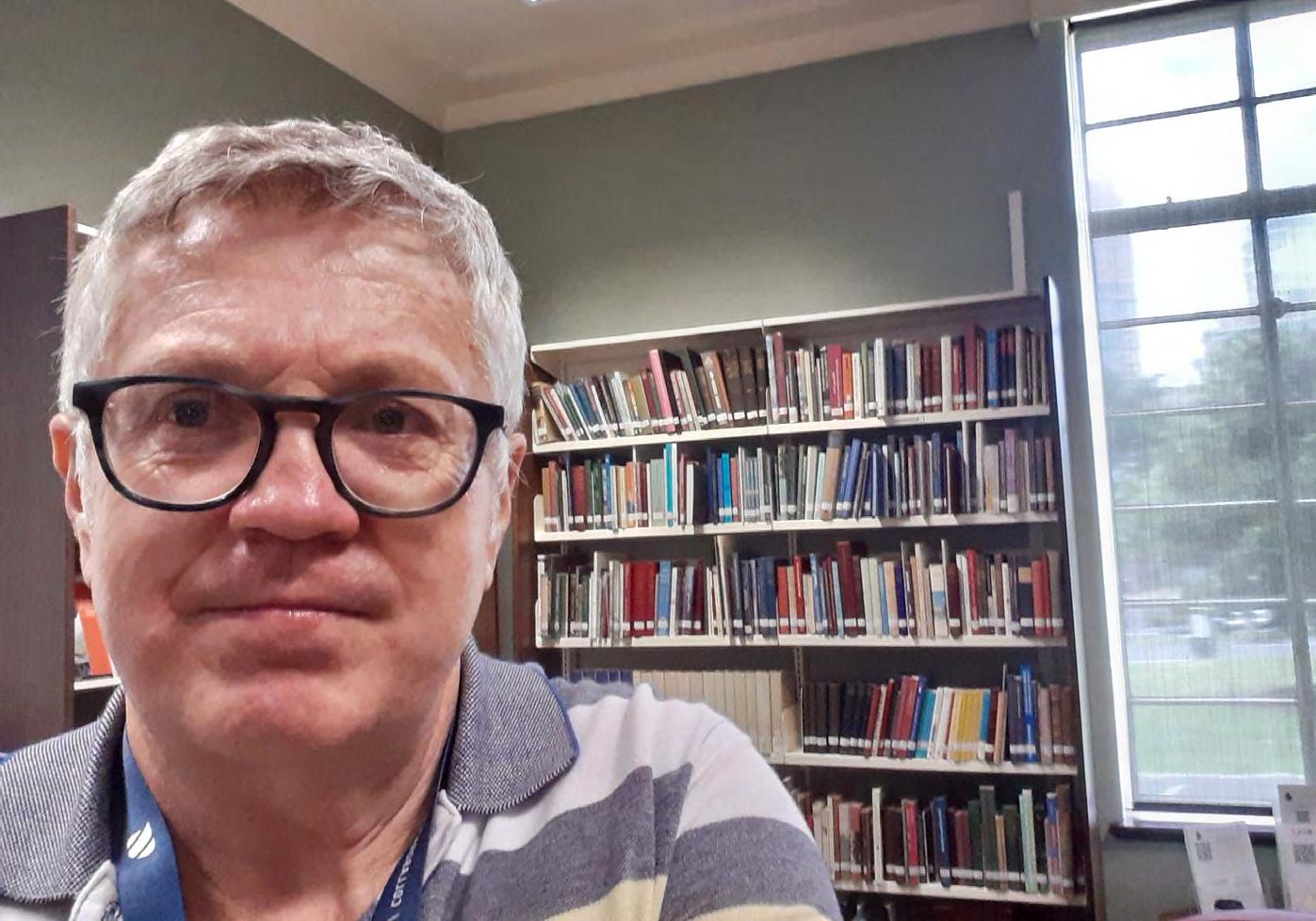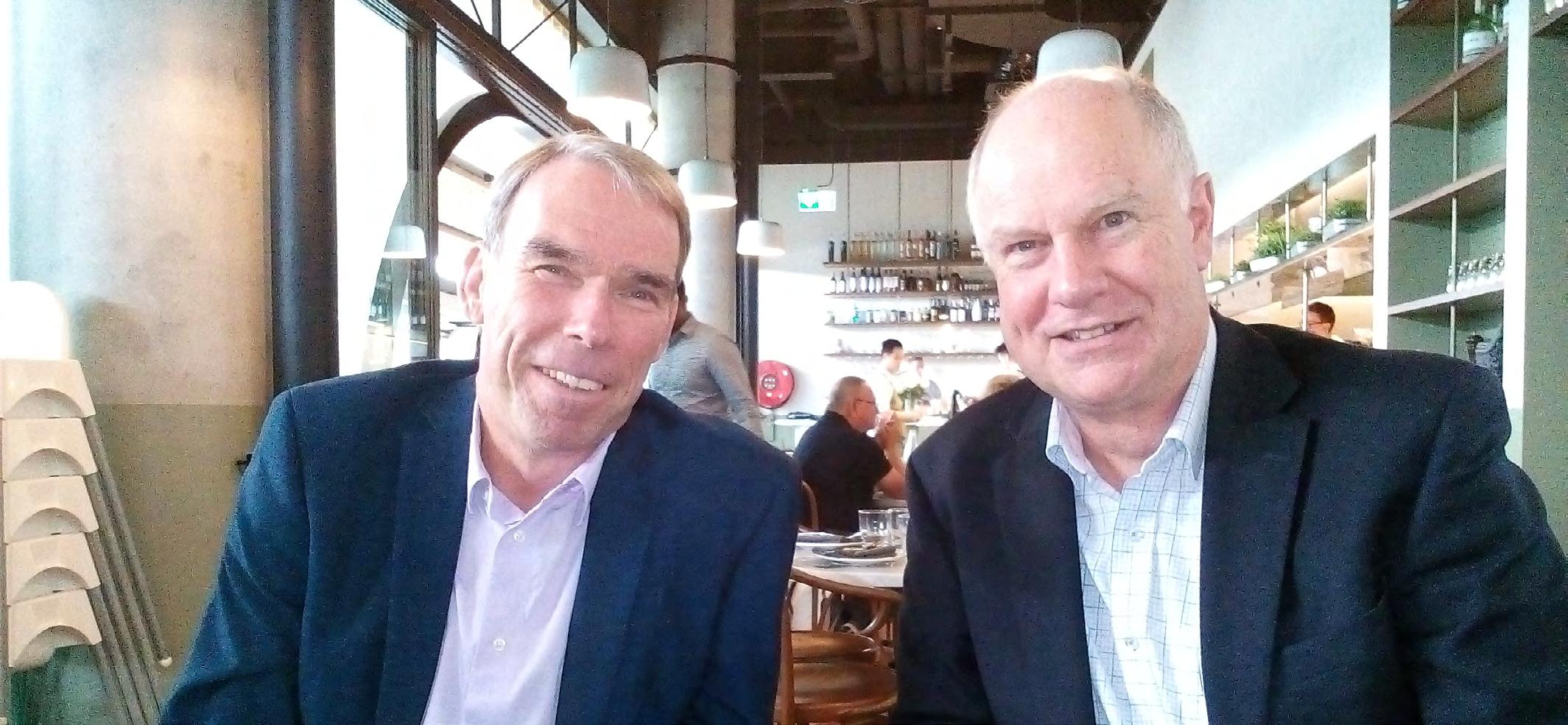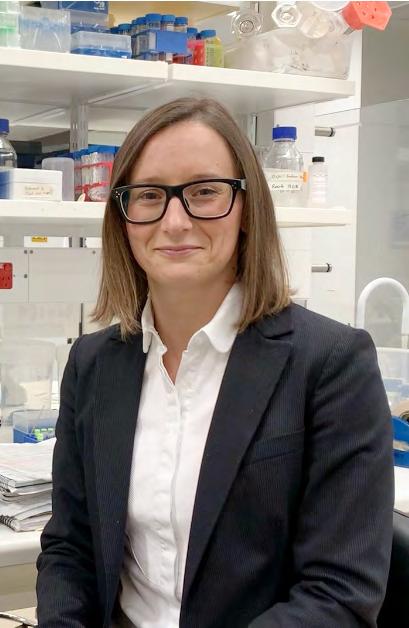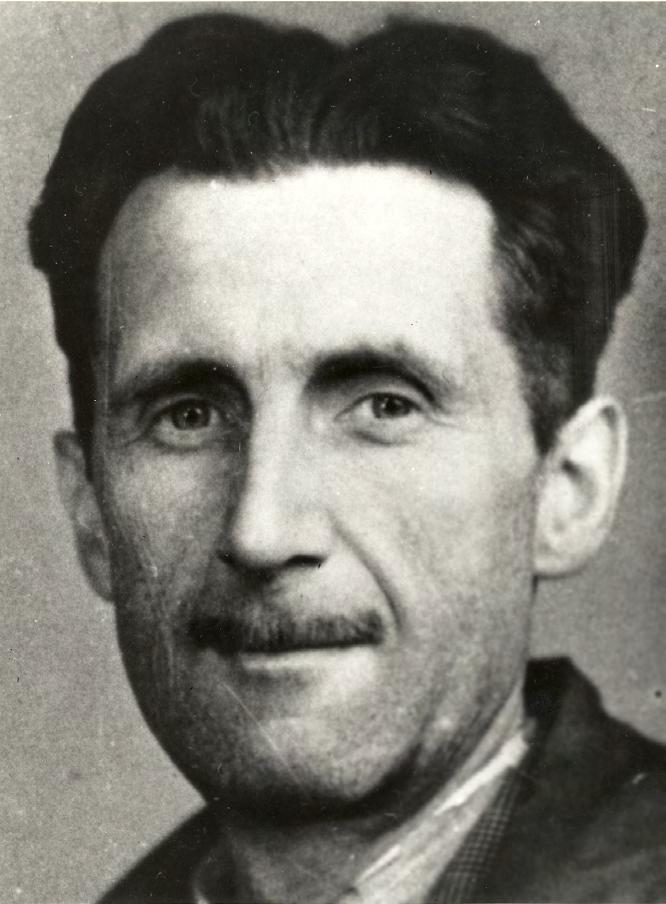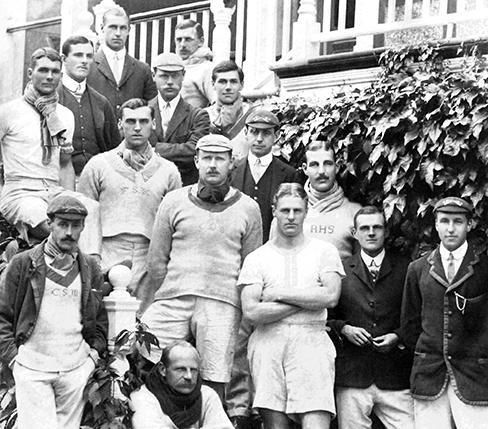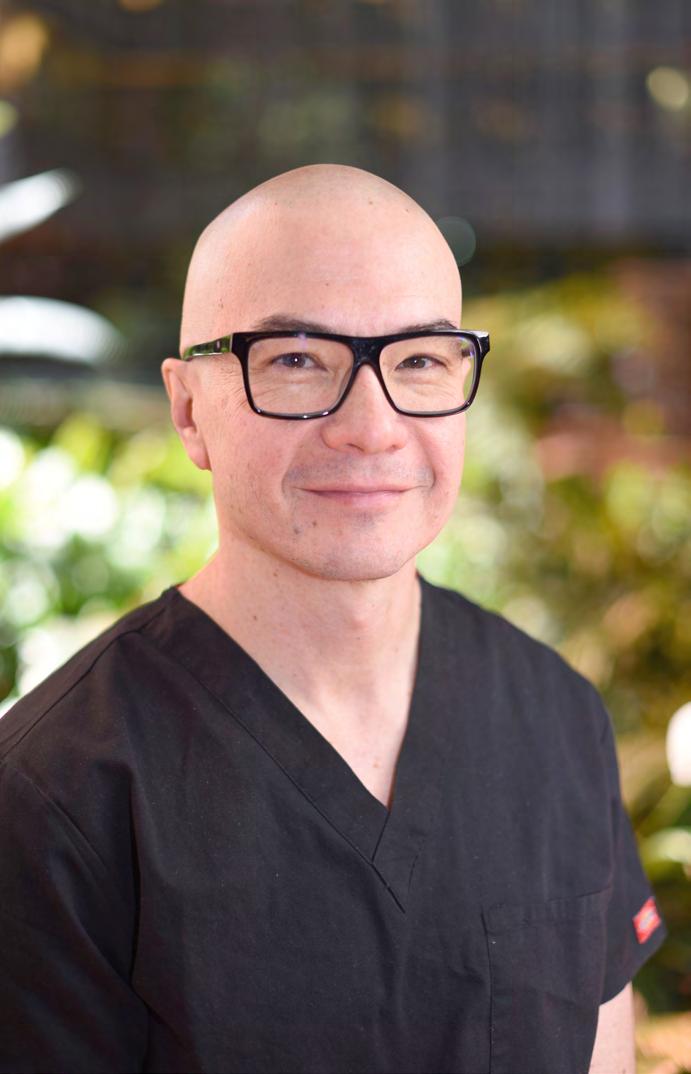
6 minute read
cultural change in surgery
Crossing continental barriers to focus on cultural change in surgery
A podcast collaboration between RACS and the Royal College of Surgeons of England
Advertisement
Culture change in surgery: it’s a tough and uncomfortable, but important, subject that we must talk about. That’s exactly what Associate Professor Rhea Liang, general and breast surgeon on the Gold Coast and Chair of the Royal Australasian College of Surgeons (RACS) Operating with Respect Education Committee, and Mr Simon Fleming, an orthopaedic Trainee based in London, crossed continental barriers to do. In the first ever podcast collaboration between RACS and the Royal College of Surgeons of England (RCS England), Associate Professor Liang and Mr Fleming combined their knowledge, experience and ongoing work on discrimination, bullying and harassment to produce a four-part podcast series on the theme of culture change in surgery. Surgical News spoke to Mr Fleming and Associate Professor Liang to find how the concept came about. “Simon heads the #HammerItOut campaign, an orthopaedic-led cultural change initiative in the UK, which has now extended to other specialties through related hashtags such as #CutItOut,” said Associate Professor Liang. “It has obvious similarities with the #OperateWithRespect program run by RACS, and we share information and ideas regularly. “So when Rhea Folkers, Digital Learning Coordinator at RCS England, contacted us about recording a single podcast as part of The Theatre, an ongoing podcast series, which looks at innovation in surgical education, we thought it was a great idea to share experiences from our respective programs,” she said. “As we brainstormed, it became apparent that we would do the topic a disservice if we tried to shoehorn everything into one podcast,” Mr Fleming said. “And so the four-part podcast series around ‘culture change’ was born. It’s a collaboration that we are very proud of, and it feels almost serendipitous, as I will be in Australia in about two years to begin my Fellowship.” The podcast series has been a success, having been listened to almost 2000 times since its launch. The series aims to bring conversations about bullying, harassment and discrimination in the surgical workplace to the forefront of professional discourse, in the hope of encouraging long-term changes in attitudes and behaviour at all levels. “There’s that saying, ‘Oh, terrible bedside manner, but they’re a good surgeon.’ And I think we have to challenge that. Because the evidence shows that the competencies that don’t relate to your actual technical ability do affect the outcomes for your patients. So it’s not possible to say that you’re a good surgeon when you have bad bedside manner,” Associate Professor Liang said in the first part of the Culture Change podcast.
Mr Fleming and Associate Professor Liang explore, among other issues, the common misconception that behaving respectfully is the same as being nice and non-assertive. “The measure of respect in a team is if you feel safe enough to disagree with and challenge each other,” Associate Professor Liang said in the first episode of the series. “It’s not about being nice and acceding to every request without question.” “Bullying is about power and silence,” agreed Mr Fleming. “Not feeling able to speak up and say something’s wrong is just as disempowering.” How can we attain culture change in surgery? Mr Fleming and Associate Professor Liang have an open discussion about why we need culture change in surgery and what is being done and can be done to achieve it. Their conversation suggests ways that ongoing national and international initiatives to attain culture
change might be applied to your own working culture. Operating with Respect will be familiar to RACS members, but it is a new concept for many RCS England listeners. Similarly, #HammerItOut will be new for many RACS listeners. However, although there are differences in context, the issues of disrespectful behaviours in the workplace are common in Australia and New Zealand and the UK. Culture change is not easy and takes time. For instance, consider how long it has taken to address smoking in public places or driving while drunk. “Without outside influence, the culture we inherit is the one we will pass on,” said Associate Professor Liang. “I hope that surgeons listening to this series will feel that their experiences of disrespectful behaviour are not isolated, and that there are practical things that can be done to address them in the workplace. “I also hope they will feel inspired to work together to gradually change the culture of surgery so that disrespectful behaviours will become as unacceptable as smoking in public or driving while drunk. We deserve it for our own wellness, and our patients deserve it because respectful culture improves communication and patient outcomes.” The standard you walk past is the standard you accept “If you can speak up, then speak up,” said Associate Professor Liang. “If you can’t speak up, especially if there is a power or seniority differential, then you should confide in a trusted colleague. The behaviour will only continue to be acceptable for as long as we collectively stay silent.” One of the ways surgeons can feel emboldened enough to speak up is if they feel empowered, and if they feel they will be listened to. “We are asking for people to change their minds, attitudes and beliefs, and we can’t make people do that,” said Mr Fleming. “What we can do is hope that people will listen – really listen and reflect. The real goal is to empower others and give a voice to those who might feel voiceless and to use the power and privilege we have to set surgery on a path that, in time, we can look back at and say: ‘Wow, can you ever imagine people acted that way?’” Listening to this podcast series will give you a deeper understanding of what you, as an individual can start doing right now, and how you can spread that to your hospital and to your colleagues. “Once you know better, you can try to be a bit better,” continued Mr Fleming. “We owe it to our patients, our colleagues and ourselves to be better.” Listen to the four-part podcast series on culture change atrcseng.ac.uk/news-andevents/podcast/
VASM Webinar Series starts from 2 December 2020 to 3 February 2021
Registrations now open

The Victorian Audit of Surgical Mortality invites you to the new ‘live’ Webinar Series in collaboration with Safer Care Victoria, Victorian Agency for Health Information and Victorian Perioperative Consultative Council to improve patient care using audit data. The series will commence from the 2 December 2020 to 3 February 2021. This is a free educational webinar series and registration is a must to receive your unique Zoom login for each session. This educational activity has been approved in the RACS CPD Program. Fellows who participate can claim one point per hour in Maintenance of Knowledge and Skills. Participation in this activity will be populated into your RACS CPD Online. For a copy of the program with registration details visit https://www.surgeons.org/research-audit/surgicalmortality-audits/regional-audits/vasm/workshopsseminars. For enquiries email vasm@surgeons.org.
Developing a Career and skills in Academic Surgery (DCAS) course

Monday 10 May 2021, 7:15am – 4:30pm Melbourne Convention and Exhibition Centre, Melbourne
Hot topic speaker: Michael Vallely - Ohio, USA
Keynote speaker: Peter Choong - Victoria
Register online and view the provisional program at: www.tinyurl.com/DCAS2021
Further Information: T: +61 3 9249 1117 | E: dcas@surgeons.org
Presented by: Association for Academic Surgery in partnership with the RACS Section of Academic Surgery.
Proudly sponsored by:


